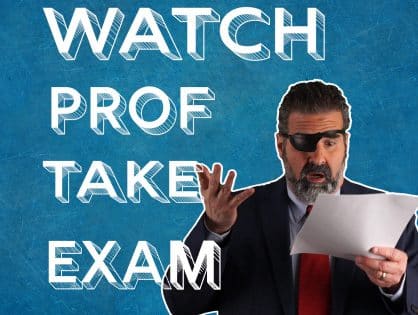Learning and curiosity have a deep relationship, and in fact, interest complements knowledge. We learn to the best of our ability when we are curious to know about vivid things. If you are not eager to know about something and various aspects of your subjects, your learning may remain incomplete. Besides, most of the most significant discoveries and innovations of the world started with curiosity. Those who could make a real difference to the world were keen to unlock new verticals of learning. So, it would not be wrong if we say that curiosity is the first step towards efficient understanding

To substantiate, there is a research-based study that affirms the vitality of keenness in the process of learning. According to this study, curiosity in students is as imperative as intellect in ascertaining their performance in their academics. Also, according to research in neurology, eagerness makes our minds more receptive to learning. When we are curious to learn, our brains tend to enjoy the process of learning and holistically grasp knowledge. Imagine if there was no curiosity in Albert Einstein, physics could have remained deprived of some crucial findings. If the Wright brothers were not keen enough, who knows if aeroplanes could have been a reality or not.
Needless to say, if you look at learning as an objective or a destination, curiosity is the journey to it. Would you be able to learn something you are not passionate about or are not interested in? You may be able to cram things for the sake of doing well in the exams and may even achieve good grades. But what about learning? This is perhaps the biggest problem with the prevalent education systems. The education systems are killing curiosity in students and learners to make them adapt to a method of continuous assessments or exams. However, learning and actual development in students is taking a back seat in this new trend. This blog talks about the various aspects of curiosity and how it supplements learning by playing a pivotal role in it. Next, let us analyse the different ways in which interest is essential for learning. On the other side of it, you can realise the importance of being curious while learning. The magic of curiosity can do wonders to make you passionate about the learning process.
5 Reasons why curiosity is vital for learning
1. It promotes active learning
Curiosity makes your mind much more robust and more open to learning new information. Curious students often ask questions during lectures and are keen to find the right answers. So, their mind is always receptive to learning and is active to grasp as much information as possible. Besides, they are keen to go beyond textbook knowledge and look to apply relevant experience in their day to day activities. Not only such students excel in their academics but also outshine others in terms of knowledge. In current times of cut-throat competition, holistic development is critical for students to achieve success. Therefore, in your pursuit of this comprehensive development, active learning can play a crucial role. Moreover, active learning is an essential prerequisite for some fields of study like engineering, law, and so on.
2. It attracts new ideas and observations.
Students who are eager to learn are often observant of new ideas. They have a knack for the exploration of various fundamentals of the education of the world. Besides, they try to create relevance with new ideas and discover ways to incorporate them into their pursuit of self-improvement. Curious students are committed to enhancing their knowledge by learning new things almost every day. However, students who do not have this eagerness only look at education as a system of exams or assessments. Can you relate to it? With curiosity, you can unlock new doors of success and skills for your personal growth. It can also build in you the sufficient ability to innovate and improvise in different areas of life. In its absence, you are often dishonest to your education and take it as a burden. You need the right motivation to keep pushing yourself to do well and excel. Thus, We can now affirm that curiosity can be a vital cog in your study motivation.
3. It rewards learning
Curiosity also has the prowess to make learning more rewarding for students. Curiosity prepares the brain for learning and makes learning a joyful experience. Based on this experience, students find subsequent learning pleasing and rewarding. Besides, they can see education as making a real difference in their life and their personality. This is another reason why you should look to develop curiosity in yourself to make your learning wholesome. If you are not keen on learning something, it becomes a mere formality. So, curiosity can make you fall in love with knowledge and rediscover your perspectives. If you are eager to learn, you will always associate learning with pleasure.
4. It unfurls new possibilities.
All the successful science experiments started with a curious idea. As they became successful, they opened a world of new possibilities for human civilisation. So, there is a lot of power that is intrinsic to the idea of curiosity. You can unlock new opportunities and horizons for yourself when you learn with curiosity. Without eagerness, these possibilities may remain latent around you, and you may never see them. But if you are keen to build on your knowledge each day, it can help you to realise or build new skills. Further, these skills can prove to be crucial for you when you start looking for your dream job. Hence, being curious is one of the best ways for self improvement that you can ever discover.
5. It leads to personality development.
Curious students are fond of asking questions and challenging the merit of things. When they ask questions to their teachers on a regular interval, they can capitalise on their communication skills. Besides, in the process of asking questions on behalf of the class, they develop strong leadership skills. So, you can see that with eagerness to learn; you can incorporate a lot of soft skills into your personality. The process of being a curious learner can make you a much more vivid person than you have ever known. This confidence can give you an edge over others when the competition gets down the wire.
To wrap up, it can be concluded that learning is incomplete without curiosity and the willingness to learn. We tend to learn better when something intrigues us and inspires interest in us. Also, eagerness to learn adds a lot more value to the learning process. Learning can be fun when you are curious to grasp knowledge and are excited to discover new ideas. Moreover, there are scientific testaments to the correlation between education and curiosity. Further, In professional courses like medicine or law, curiosity becomes far more essential. Such professions require abundant knowledge and the ability to think beyond the ordinary. Thus, to be a successful lawyer or a doctor, curiosity is almost indispensable. You should continuously look for various ways in which you can encourage interest in yourself. This curiosity can take you places in your career graph and boost the prospects of meeting your career goals.






 Do you struggle with wasting time and need a tool to help you focus your attention? The Pomodoro technique, developed by Francesco Cirillo in the 1980’s, is been used by me and millions of others. Let me quote from his book,
Do you struggle with wasting time and need a tool to help you focus your attention? The Pomodoro technique, developed by Francesco Cirillo in the 1980’s, is been used by me and millions of others. Let me quote from his book,  Kitchen Timer
Kitchen Timer As with any time management technique, the pomodoro technique may or may not work for you. Some people swear by it and others despise it. All I can do is suggest that you try it for a few weeks and see if it works for you. For example, do some practice essays using the
As with any time management technique, the pomodoro technique may or may not work for you. Some people swear by it and others despise it. All I can do is suggest that you try it for a few weeks and see if it works for you. For example, do some practice essays using the 
 Fact Pattern Example
Fact Pattern Example Superior Rule Statements
Superior Rule Statements How to Improve
How to Improve
 How to take notes in law school isn’t difficult, if you use the Cornell notetaking method. Developed at
How to take notes in law school isn’t difficult, if you use the Cornell notetaking method. Developed at 

 Keep in mind that law school is a professional school, preparing students to become lawyers and not professors. When you bring your case before a judge, or discuss your case with a partner, that judge or partner only wants to hear about the law relevant to the case—not everything you know about the law. Judges, partners, AND professors are busy people, so only provide the rules you need to answer the question.
Keep in mind that law school is a professional school, preparing students to become lawyers and not professors. When you bring your case before a judge, or discuss your case with a partner, that judge or partner only wants to hear about the law relevant to the case—not everything you know about the law. Judges, partners, AND professors are busy people, so only provide the rules you need to answer the question.





 Tip #1
Tip #1
 Tip #10
Tip #10